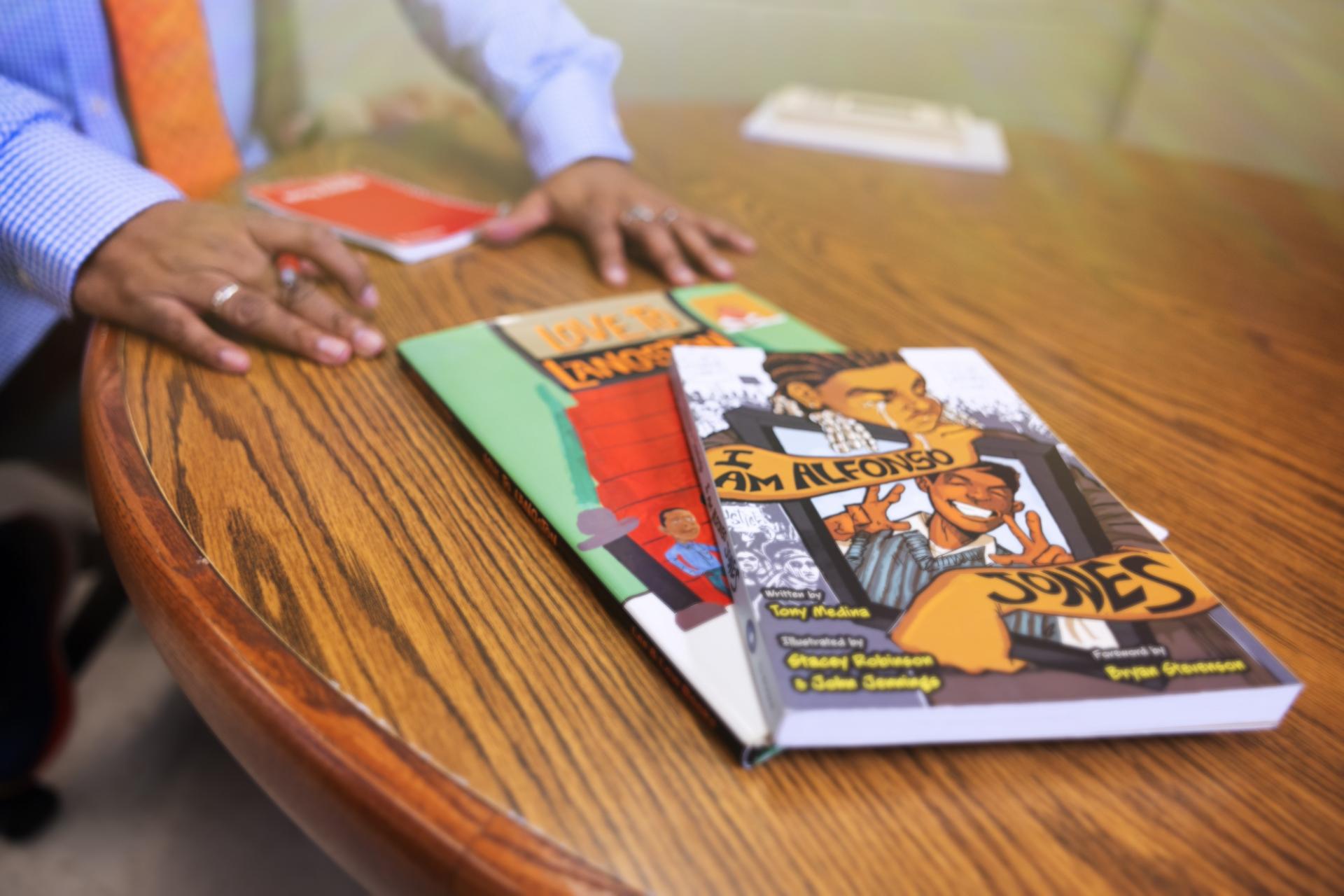When you’re a professor who is also a writer, you always have two trains running. At the end of each academic year, when we must show cause for our productivity as faculty, I find myself scouring my social media and the Google machine for the details of my annual literary activities to update the old CV. This is how I learned, over a year ago, that two of my books were banned.
Initially, it was my graphic novel, “I Am Alfonso Jones,” about a 16-year-old Black teen killed by a police officer while shopping for his first suit for his father’s release from prison through DNA exoneration, that was banned.

I recall reeling from the incongruity of it all. I was shocked, dismayed, and strangely enough, elated. Getting my book banned was not as devastating as it seems. It’s a double-edged sword. It means, as Stephen King recently said of his own banning, “I must be doing something right.” (And getting banned alongside Toni Morrison and Art Spiegelman is a badge of honor.)
I found articles and lists from PEN America mentioning my book as banned due to its social justice issues among others that were banned for themes ranging from being too “woke” to LGBTQ+ narratives.
I immediately contacted my illustrators and editor asking if they were aware of our book being banned. They had known for six months (insert shocked emoji). Why I wasn’t informed is beyond me. Nevertheless, I used my social media platforms to inform my various communities. One writer friend, poet Marioposa Fernandez, wrote an article for the Daily Kos that picked up momentum. And just last spring, on the heels of the “I Am Alfonso Jones” banning in Texas and Florida, another book of mine, “Love to Langston”, was banned in Florida. “Love to Langston,” a children’s picture book biography on the life of Langston Hughes had been a very popular, never-out-of-print title for over two decades. This banning angered me because it was as if Langston Hughes’ life story had been banned. With a grandfather who was killed alongside John Brown at Harper’s Ferry, Hughes was a Civil Rights activist before there was a term for it. The irony of it all was that Hughes himself, the first Black writer to earn a living as a full-time writer, had been caught up in the maelstrom of the McCarthy period, dragged before the Subcommittee on Investigations accused of Communist affiliations.
Article ID: 1791





